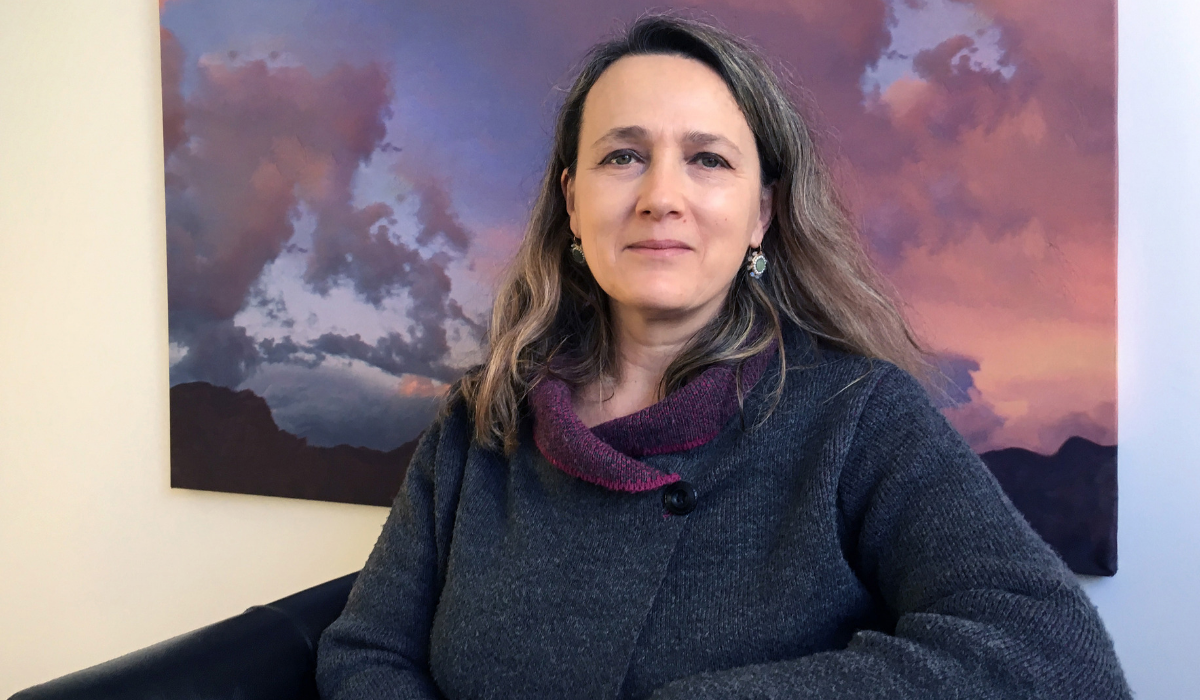
- Relationship Advice
Retraining for a flexible career with Tavistock Relationships, from introductory counselling course to masters
Becoming a counsellor has opened up a rewarding career with a positive work/life balance, former architect Velia Carruthers has found.
After many years as an architect, running her own practice, it was having her third child that made Velia Carruthers stop and take stock. While she was still enjoying her work, she was finding it harder and harder to create boundaries between her professional and personal lives. So when she spotted an advert for a Tavistock Relationships open evening while browsing flexible working options, she decided to find out more.
“I knew I wanted to have an interesting job, but I also wanted to spend more time with my family, and not have to fit them around my work. I’d always been interested in psychotherapy; in fact I was torn between that and architecture when I first started out. So I thought I’d go to the open evening, and see whether it was a path I was interesting in exploring. And I’m so glad I did.”
The course offered by Tavistock Relationships is in couples counselling. This really struck a chord with Velia, as she had gained some up-close insights into how couples navigate their relationships though her work as a domestic architect. So she applied for the three-month introductory course shortly afterwards and she was accepted after passing an interview.
“The introductory course was a brilliant way to get a taste of what being a couples therapist would involve, and whether I was the right fit. There’s an evening option available, but I chose to attend on Thursday mornings, 10-1, as that fitted round my childcare. We had two amazing tutors and worked with them as a large group and at times in small groups, discussing papers and practical examples. It really opened up my mind to a new way of thinking, and confirmed that this was a path I wanted to follow.”
Following a further application process, Velia was then accepted onto the full training course. It took place on two evenings a week, which again worked well with her family responsibilities. It typically takes around three years to qualify, but as Veila explains, it is possible to fit your studies around your weekly commitments.
“The first year is mainly academic, but if you pass that and progress into the second year, you start taking on clinical cases, with real clients. You need to have carried out 300 hours of casework before you can qualify, but the pace at which you work is up to you. If it takes you longer than two years to complete those hours, it isn’t a problem.”
The scheduling of the casework is equally flexible. Unlike some course providers, Tavistock Relationships provides their students with all their clients. They also have a team of assessors and clinical heads who make sure students are only allocated appropriate cases. And the student has complete control over their casework schedule, says Velia.
“I chose to block out Saturday mornings for my client casework, as I knew my husband would be at home to look after the family. Some of my student colleagues were retraining while working in a full time job, so they chose to take their cases in the evenings and leave their weekends free. You can work out what pattern would suit you and fit your hours around it.”
Velia has now completed her training and is working for Tavistock Relationships as a visiting clinician and assessor, as well as beginning to build her own private practice. So would she recommend the course to others?
“I’m so glad I chose to retrain, and to do so with Tavistock Relationships. It’s a hugely supportive organisation, with a real sense of community, which was so refreshing after working for myself. The tutors are excellent and experts in their own fields. Also by being therapists themselves, they can bring real case knowledge. And because of the high level of demand for counselling, and the way the organisation provides you with clients, it’s relatively easy to build up a good income. It just depends on how many hours you want to work – and that’s up to you to decide.”
So what advice would Velia give to others who are thinking of retraining as a counsellor?
“I’d definitely recommend going to the open evening and signing up for the introductory course. Training to be a counsellor is a very personal journey and it can be hard at times. So the three month introduction is a great way to find out whether counselling is right for you – and whether you’re right for counselling. Even if one decides not to proceed with the training, it is an experience which can enrich you anyway.
“From a personal perspective I’d say, if you’re driven to help people, and you’d like a stimulating career that you can fit round the rest of your life, just do it. I’m so glad I did.”
You can find out more about all our courses here.
To sign up for the next Tavistock Relationships Open Evening visit our registration page.